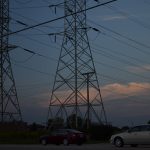New Study Says Housing is the Key to National Preparedness

Image courtesy of David Stanley under Attribution 2.0 Generic License, resized to 700 x 391 pixels.
According to a study published by Ohio State University researchers, housing is a critical variable when it comes to peoples’ propensity to be prepared for emergencies. Although the focus of this blog is typically utility emergency preparedness, the results of the study resonated with me because it made me realize that the psychology of people can either help or hinder utility restoration results.
Why Housing Matters in the Context of General Societal Preparedness
The study’s overall objective was to assess how various societal and socioeconomic vulnerabilities relate to disaster preparedness. The results show that households facing housing insecurity tend to be less prepared than people who are housing secure. Housing insecurity correlates with people that are struggling to make ends meet, especially as it relates to their rent or mortgage payments. People that live in low-quality homes are similarly behind the curve when it comes to preparedness.
Similarly, people that rent are less likely than homeowners to be prepared. The common thread is that a large percentage of these folks fall in lower income brackets, and people with lower income have fewer resources and options to ensure preparedness.
Simply put, lack of resources – financial or otherwise – increases the focus on day-to-day activities to get by or perhaps even survive. Conversely, those with ample resources are not as concerned with day-to-day finances and can afford to allocate more time, money and focus to disaster preparedness.
The bottom-line conclusion of the study is that the U.S. needs to improve the country’s housing situation in order to reduce the societal impact of natural disasters. Unfortunately, there is no line of sight to actually accomplishing this, which means that utilities need to optimize communication and outreach activities to educate customers on what it takes to be prepared. This will not only help residents, but it should also in theory reduce the people-related noise and blockages that tend to hinder utility restoration efforts ? regardless of their housing status.



